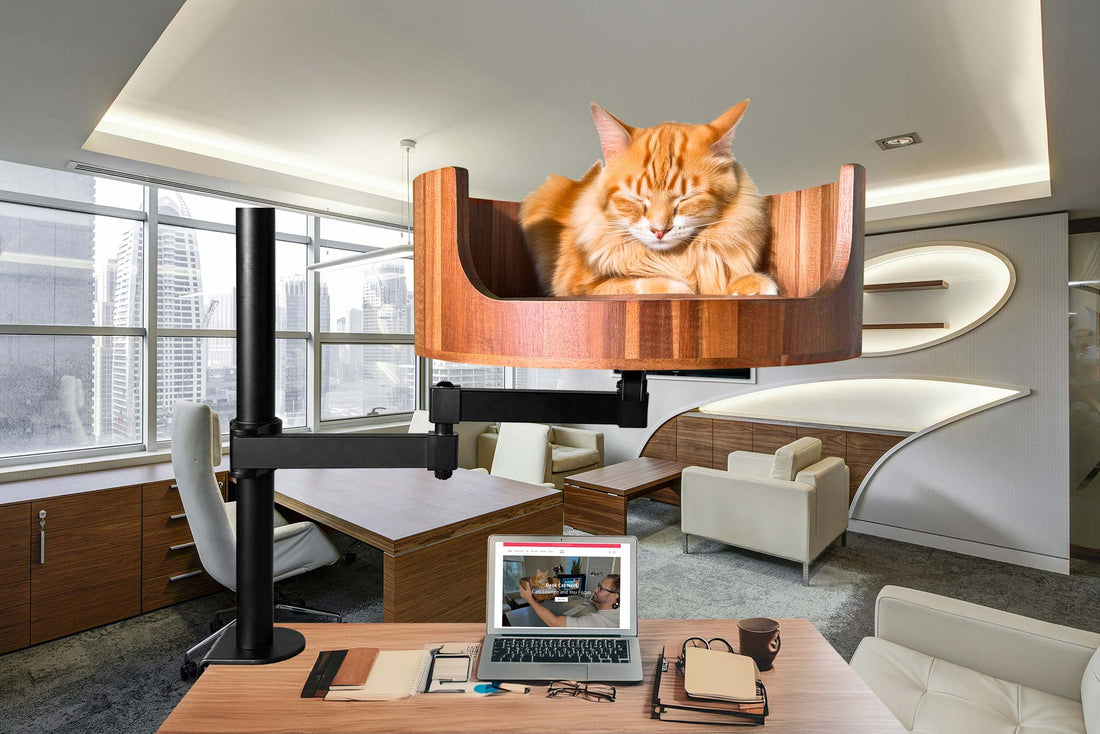
Why Does My Cat Vomit? Understanding Feline Health Issues
Share
For many cat owners, dealing with the occasional bout of vomiting from their feline companion can be a common concern. But why exactly does your cat vomit? Understanding the reasons behind this behavior can help you better care for your furry friend and ensure their overall health and well-being. In this article, we will explore the various factors that can contribute to feline vomiting and provide insights into how you can address these issues to keep your cat healthy and happy.
From hairballs to dietary indiscretions, there are a multitude of reasons why your cat may be experiencing vomiting episodes. We will discuss the importance of proper diet and nutrition in preventing stomach upset, as well as the significance of regular veterinary check-ups to address any underlying health issues. Additionally, we will delve into the role that stress and anxiety can play in a cat's digestive health, and offer tips on how to create a calm and comfortable environment for your pet. By gaining a deeper understanding of why cats vomit and how to address these issues, you can be better equipped to ensure the well-being of your beloved feline companion.
1. Cats vomit as a natural way to expel foreign objects, hairballs, or toxins from their system.
2. Hairballs are a common reason for vomiting in cats, especially those with long fur or who groom excessively.
3. If vomiting is frequent, accompanied by other symptoms, or contains blood, it is important to seek veterinary attention.
4. Dietary changes, stress, and underlying health conditions can also contribute to a cat's vomiting.
5. Understanding the reasons behind your cat's vomiting can help you provide appropriate care and treatment to ensure their overall health and well-being.
Common Reasons for Cat Vomiting
One of the most common reasons why your cat may be vomiting is due to hairballs. When cats groom themselves, they swallow loose hair that can accumulate in their stomach and form hairballs. Additionally, dietary issues such as food allergies or sensitivities can also trigger vomiting in cats. Another possible reason for cat vomiting is the ingestion of foreign objects such as toys, hair ties, or string.
Health Conditions That Cause Cat Vomiting
There are several health conditions that can lead to vomiting in cats. Gastrointestinal issues such as gastritis, inflammatory bowel disease, or pancreatitis can all cause vomiting. Kidney disease, liver disease, and thyroid problems are also common health issues that may result in vomiting in cats. In some cases, more serious conditions such as cancer or intestinal obstructions may be the underlying cause of frequent vomiting.
When to Seek Veterinary Care
It is important to monitor your cat's vomiting habits and seek veterinary care if the issue persists or worsens. If your cat is vomiting frequently, has blood in their vomit, is lethargic, has a loss of appetite, or is showing other concerning symptoms, it is crucial to schedule a visit to the vet. A thorough examination and possibly diagnostic tests may be needed to determine the underlying cause of your cat's vomiting.
Treatment Options for Cat Vomiting
The treatment for cat vomiting will depend on the underlying cause of the issue. In cases of hairballs, providing your cat with hairball remedies or a special diet may help reduce vomiting. Dietary changes, medications, or surgery may be necessary for addressing more serious health conditions that are causing vomiting in cats. Your veterinarian will be able to recommend the most appropriate treatment plan based on their diagnosis.
Frequently Asked Questions
Why does my cat vomit frequently?
There are several reasons why your cat may be vomiting frequently. It could be due to hairballs, a change in diet, eating too quickly, allergies, or an underlying health issue. If your cat is vomiting frequently, it is best to consult with a veterinarian to determine the cause.
Will the Desk Cat Nest help prevent my cat from vomiting?
While the Desk Cat Nest can provide a comfortable and calming space for your cat, it may not directly prevent vomiting. However, by providing your cat with a designated resting area, it may help reduce stress and anxiety, which can be contributing factors to vomiting in cats.
Can the Desk Cat Nest help with hairballs?
Yes, the Desk Cat Nest can provide a cozy spot for your cat to groom themselves, which can help reduce the occurrence of hairballs. By giving your cat a designated space to groom and relax, they may be less likely to ingest excess fur that can lead to hairballs.
My cat vomits after eating too quickly, will the Desk Cat Nest help with this?
The Desk Cat Nest can provide a comfortable and secure area for your cat to eat their meals, which may help reduce the likelihood of them eating too quickly. By giving your cat a designated feeding spot, it may encourage slower and more mindful eating habits, potentially reducing vomiting episodes.
Should I consult with my veterinarian before purchasing the Desk Cat Nest?
If your cat is experiencing frequent vomiting or any other health issues, it is always best to consult with a veterinarian before trying new products or solutions. Your vet can help determine the underlying cause of your cat's vomiting and provide appropriate treatment options.
In conclusion, investing in a Desk Cat Bed is a valuable choice for helping to address the issue of why your cat vomits. By providing a comfortable and secure space for your feline friend to rest and relax, the Desk Cat Bed can help reduce stress and anxiety, which are common triggers for vomiting in cats. Additionally, the raised design of the Desk Cat Bed can help improve digestion by promoting better posture while eating or napping. Overall, the Desk Cat Bed is a practical and beneficial solution for cat owners looking to address the issue of frequent vomiting in their furry companions.



















































